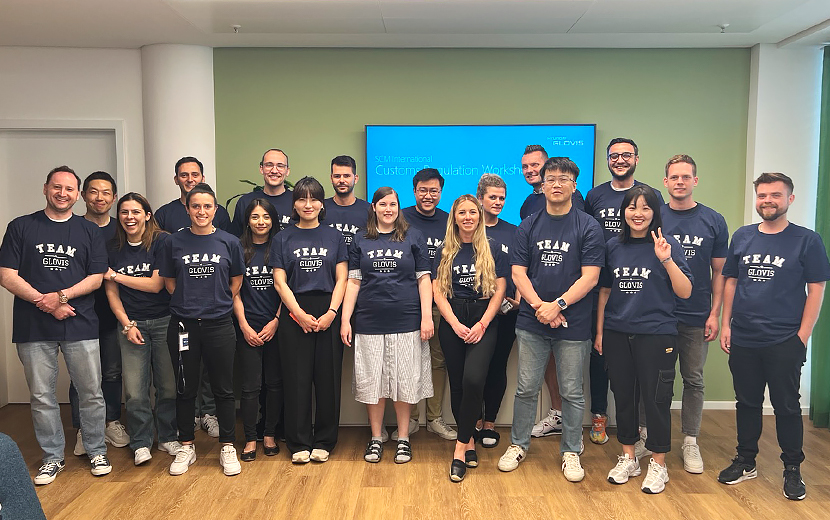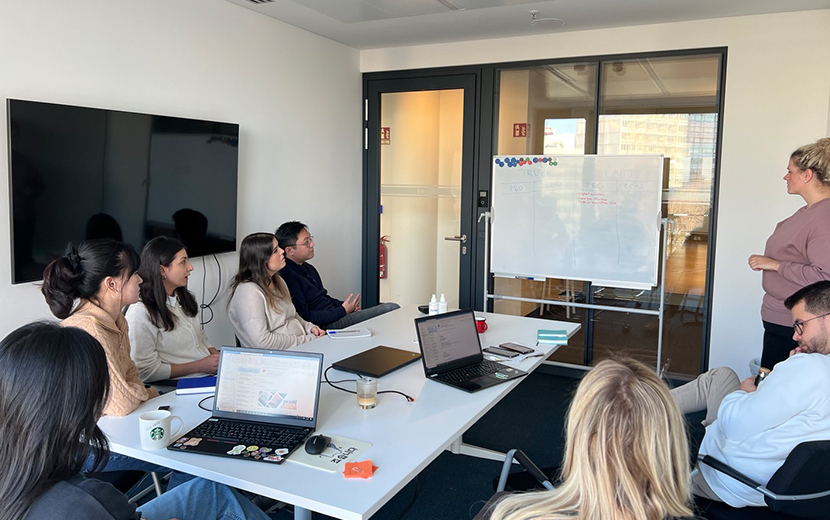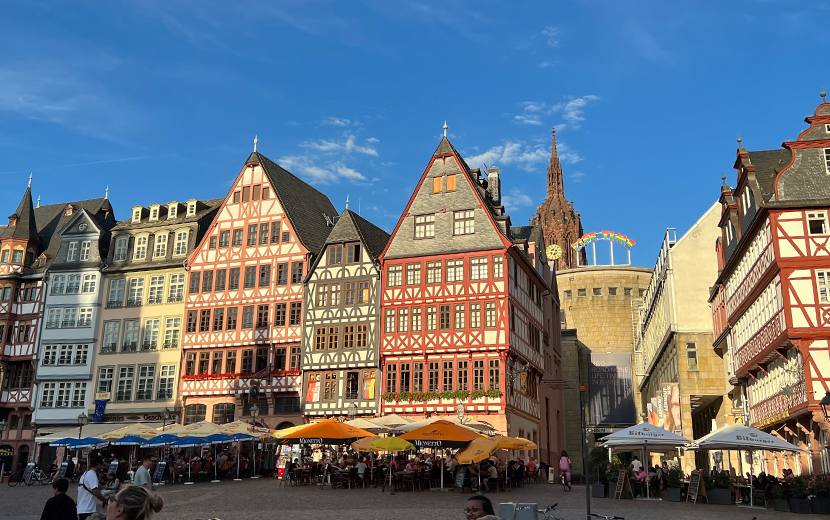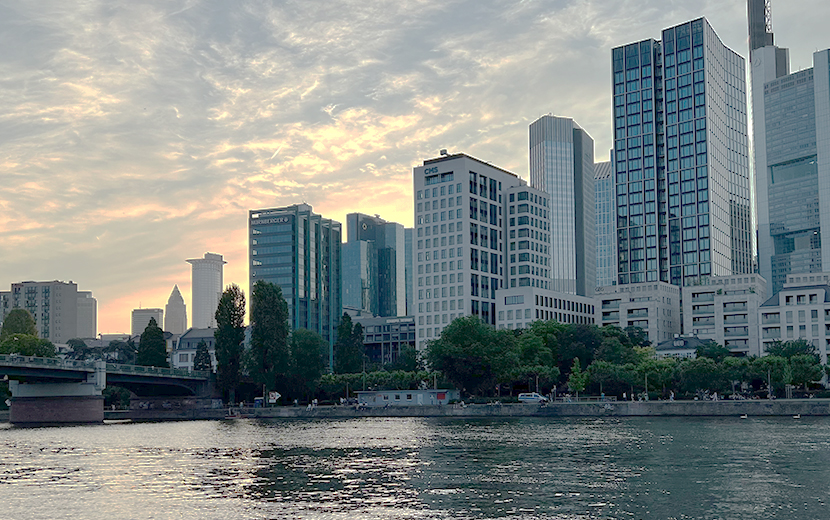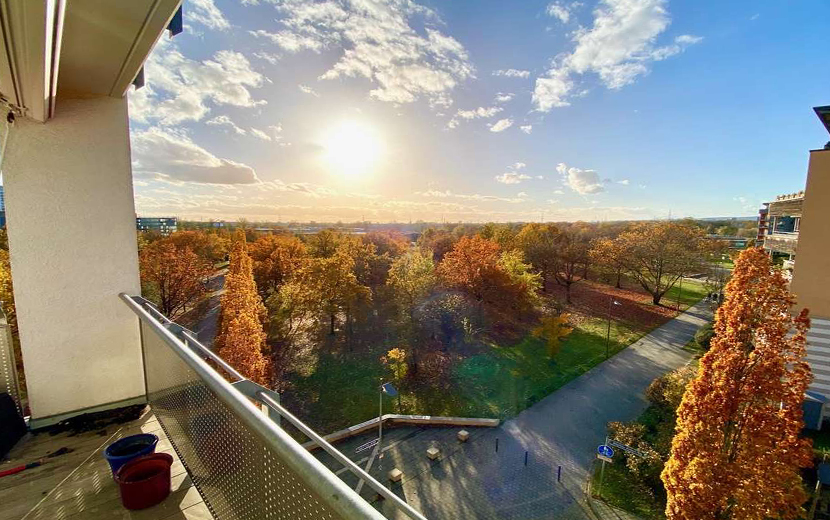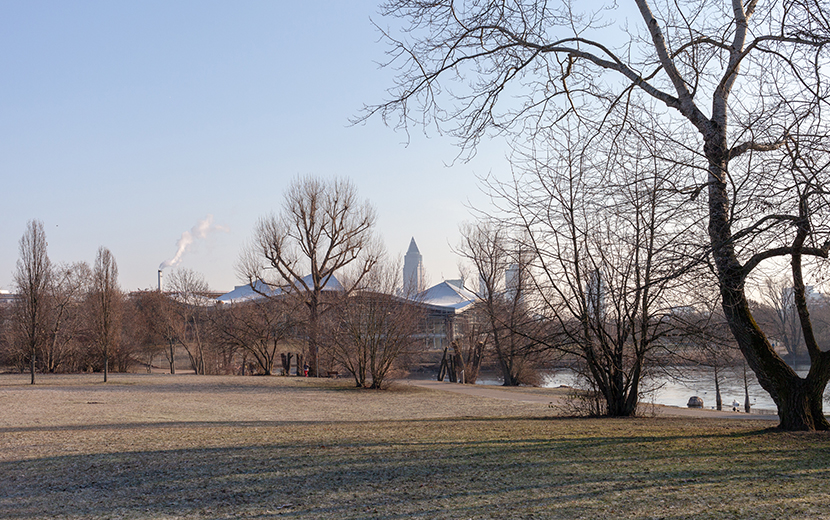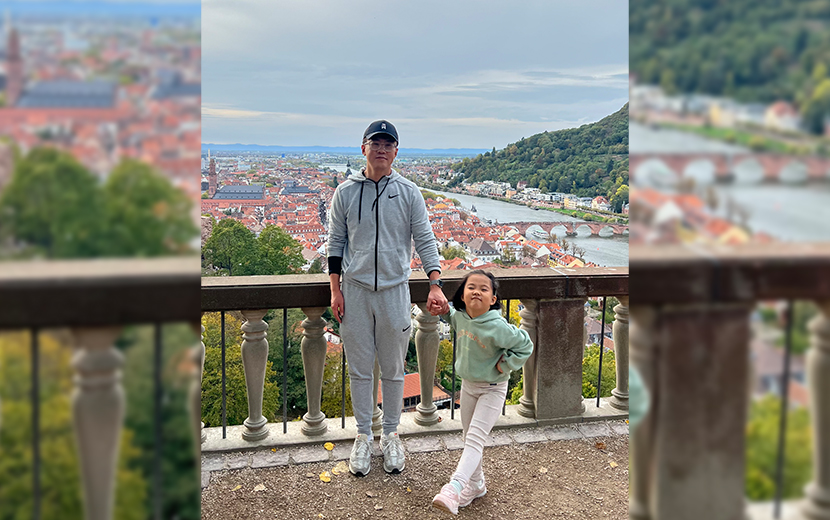Located in the heart of the EU, Germany is recognized as an important pillar of global logistics with world-class infrastructure. As the country of choice for Glovis to enter the local logistics market in Europe, Germany is an important logistics hub and home to many talented Glovis employees. Among them is General Manager Seo Myung-suk. We talk to him about his experience in Europe, where he is actively working to adapt to the local environment and resolve issues for the European subsidiary.

Glovis Europe is based in Ashbourne, a satellite town of Frankfurt, Germany. It is active in the automotive and freight forwarding business as well as the new and used car business. Vehicle logistics is divided into factory-driven transportation from Hyundai and Kia plants in the Czech Republic and Slovakia to national logistics centers, and domestic dealer transportation from national logistics centers to dealerships. Forwarding logistics is divided into sea import and export logistics, air logistics, inland procurement logistics and W&D business. As such, it is responsible for import, export and domestic transportation in all European countries and operates four branches and nine offices in major logistics hubs in addition to the headquarters.
Senior Manager Seo Myung-suk joined the Glovis Europe in May 22nd and is at the forefront of the European logistics business. He has been with Glovis for 14 years, and after eight years in the forwarding logistics department and four years in the current management improvement office, he became a European expatriate. Currently, he is in charge of the logistics of the corporation’s finished vehicles along with Jung Jeong-hyun, who joined the company in July of the same year, and is in charge of the entire finished vehicle business of the group as a coordinator.

A typical day for General Manager Seo Myung-suk is a day of communication. Since it’s usually around 3 or 4 p.m. in Korea when I get to work, I usually have a meeting with the relevant departments at the headquarters. I also have frequent calls with the expatriates in the factory VPCs. After that, I have internal meetings and deal with customers in Europe. Recently, I’ve also been having more business discussions with the COO.
“When I started as an expatriate, I expected everything to be similar and uniform because it’s the European Union, but I often feel like I’m playing a blue marble game, because each European country has its own legal entity and expatriates.”

Work can’t be all fun and games. Soon after his appointment, Senior Manager Seo Myung-suk had to immediately respond to a difficult situation. The shortage of transportation in the European automotive logistics market highlighted issues of on-time delivery and high freight rates. Negotiating freight rates due to high freight rates was a company-wide issue until the end of last year, and it was a challenging experience that took up a significant portion of Senior Manager Seo Myung-suk’s time.
As he continues to gain experience as an expatriate, Senior Manager Seo Myung-sukis making new resolutions for the new year. This year, he plans to focus on investing in logistics infrastructure and improving operational systems to move away from partner-based operations. The work and performance of our European subsidiaries is often directly linked to sales volumes, and he believes that Glovis Europe needs to be more prepared than ever as the European automobile sales market is expected to peak after the pandemic and then slow down. The issue of high freight rates is also persistent, so expanding transportation options that can reduce costs is one of our goals for this year and the mid- to long-term. To this end, Senior Manager Seo Myung-suk will continue to play his role today and tomorrow as he has done since his appointment.
“I really appreciate the hard work of our staff during the high freight rate negotiations.
I realized that Glovis Europe wasn’t alone and that all employees were in this together.
In particular, help with inland transportation at the carrier company Adampol and maritime transportation at the Shipping Business Subdivision.
I want to take this opportunity to thank you,
Adam Paul and Stena Glovis.”
Frankfurt, Germany landscape
![]() You’ve said that your European expatriate work is like a Blue Marble game – how do you coordinate and get things done?
You’ve said that your European expatriate work is like a Blue Marble game – how do you coordinate and get things done?
Unlike our organization, which handles logistics for all of Europe, our customers have individual sales offices in each country, so it is not always easy to coordinate. For example, if we take care of the export CAPA from the factory in country A, the import CAPA from Korea in country B will be reduced, and it is often impossible to coordinate because the parties involved in each country are different. Therefore, before contacting each sales office, I check the country-specific information in the system or the emails sent by the local representative, and if coordination is necessary, I explain the situation to the customer’s European expatriates and decide on the best plan.
![]() How would you describe yourself before and after the program?
How would you describe yourself before and after the program?
I’ve realized that my management skills as a head of an organization or a coordinator are important, whereas before I was more focused on the tasks that were given to me as a team member. I’m realizing that I can’t do everything by myself, and I’m learning to manage in a hybrid way, as a decision maker and sometimes as a middle man.
![]() What are the rewards of working in a Glovis Europe?
What are the rewards of working in a Glovis Europe?
I think the most rewarding part of my job is working with people from different countries and getting to know them well outside of work. There have been a lot of changes in the logistics organization in Europe over the past two years, and I think the Glovis Europe has stabilized now that we’re going through a transition period with a new COO and head of operations.
“First of all, I need to continue to study the goals and plans of the organization for the 2024,
and I want to do my part to make sure that it’s not just me,
but all of us at GEU who want to fulfill my role as an expatriate.”
![]() Tell us about your first impressions of Eschborn, Germany and the neighborhood you live in.
Tell us about your first impressions of Eschborn, Germany and the neighborhood you live in.
Ashbourne, where Glovis Europe headquartered, is full of new office buildings, and when I first moved here, I thought it was similar to Pangyo, Gyeonggi-do, Korea, where they are still building new office buildings. My family lives in a new neighborhood at the beginning of downtown Frankfurt, about an 8-minute drive from the office. We have a very big park in front of our house, like the Seoul Forest, so we have a great view.
![]() Tell us about your after-work or weekend routine.
Tell us about your after-work or weekend routine.
Most supermarkets and shops are closed on Sundays in Germany, so I tend to go out on Saturday. In the morning, my daughter goes to Korean school, and when she gets home, I do my groceries for the week. Sometimes I go to a nearby town or outlet mall. On Sundays, I usually stay home, catch up on the week’s work, or spend time in the Rebstock park in front of my house.
Rebstock Park where Senior Manager Seo Myung-suk spend his free time
![]() What is the biggest difference between Germany and Korea, and how are you adjusting to it?
What is the biggest difference between Germany and Korea, and how are you adjusting to it?
I think there’s a lot of laid-backness in Germany compared to a lot of things that come out of Korea’s “fast and furious” culture, so reservations are required for anything, and there’s often a significant wait time. I guess the only way to adapt is to, well, adapt to the German pace as a foreigner.
![]() What are some of the challenges or pleasant experiences you’ve had with cultural differences?
What are some of the challenges or pleasant experiences you’ve had with cultural differences?
I currently live in an apartment, but my daughter wants to live in a house with a small garden, so I’m looking for a place to move to. But it’s really hard to find a place to live in Germany, you have to submit an application to the landlord, be screened and interviewed as a potential tenant, and you have to compete with other applicants. Last time I was rejected, but luckily the next time I found a place I liked, I was given the opportunity to interview the landlord. By the time this interview is published in the webzine, I’ll have made a decision on whether to move or not.
![]() What are your favorite spots to go to?
What are your favorite spots to go to?
My favorite place to go is probably Rebstock Park in front of my house, which is about 4 kilometers around, and I use it for jogging two to three times a week. I also sometimes go to the nearby town of Heidelberg, which is about an hour from Frankfurt and has a beautiful view of the medieval city from the mountainside, as well as quite a few restaurants serving traditional German food, so it’s a great place to go when I need to refresh myself.
Fun in the medieval city of Heidelberg
![]() What are your own tips for adjusting to life in Europe or Germany?
What are your own tips for adjusting to life in Europe or Germany?
I think I was the slowest one in my family to adapt to Germany, because I spend a lot of time at work, so I think trying to get along with the local employees is the best way to adapt to a new environment. I try to make small talk, joke around, and be friendly with them. My wife and daughter seem to be adjusting well, so I wasn’t too worried about it. I think the real answer to this question is to ask my wife and daughter.
“Whereas Korea has good facilities like kids’ cafes, Germany is more nature-friendly with lots of playgrounds and swimming pools, and they are very affordable.
As a father of an 8-year-old daughter, I’m going to put these places to good use.
And Germany is bordered by a total of nine countries and has a great Autobahn.
I love to travel, and I’ve traveled to Germany and other neighboring countries.
I also recommend experiencing the architecture and culture of each country, which is slightly different.”
Post Editorial Department
2024.02.23


